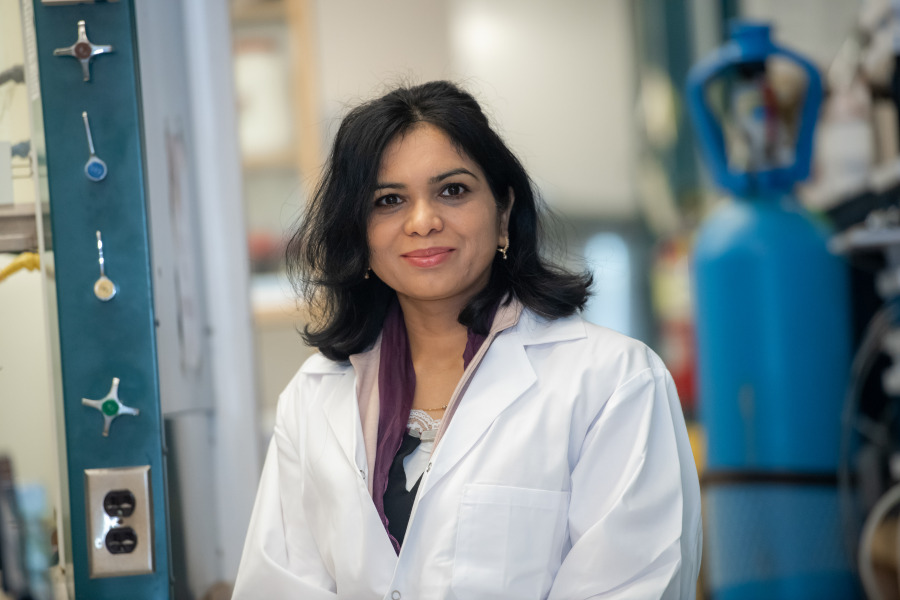UPEI chemistry professor receives funding to improve long-term storage of biological materials

Dr. Marya Ahmed, associate professor of chemistry at UPEI, has received a total of $180,000 for a project to improve the prolonged storage of human tissues and genetic material.
Ahmed has received $125,000 from the Natural Sciences and Engineering Research Council of Canada’s Idea to Innovation (NSERC I2I) grants program and $30,000 from Springboard Atlantic’s Innovation Mobilization program for a technology called NanoFreeze Solutions that can freeze biological materials without compromising the viability of the material. She has also received $25,000 from the PEI government’s Ignition Fund to create a start-up company called Nanofreeze Solutions Inc. to further develop the technology. Collaborating with Ahmed on the NSERC I2I grant were Drs. Mark Fast and Dan Hurnik, of the Atlantic Veterinary College at UPEI.
The storage of biological materials, which are important for regenerative medicine, assisted reproduction therapy, and biomedical research, is typically achieved by freezing them at very low temperatures (-80 to -196 °C) through cryopreservation. Through this process, human cells, genetic material, tissues, and organs can be kept inert for long periods of time.
Ideally, the frozen materials would not lose their viability and functions after freezing and thawing. However, water that is present in cells and tissues freezes during the process, forming ice crystals that can compromise cell viability and function. In addition, the freezing of water causes an increase in salt concentration in cells, which further damages them.
NanoFreeze Solutions uses non-toxic inert gels to freeze biological materials without damaging them, said Ahmed.
“NanoFreeze Solutions is highly effective at cell freezing and does not compromise cell viability during the cryopreservation process,” she said. “It is made up of naturally derived Vitamin B5 based gels that can be easily added to any process for the successful freezing of cells, tissues, organs, and genetic materials.”
Dr. Greg Naterer, vice-president academic and research at UPEI, congratulated Ahmed on winning the funding for her research.
“Dr. Ahmed’s project has important implications for advancements in human health research,” said Naterer. “I congratulate her on her success in developing NanoFreeze Solutions and on receiving this funding.”
UPEI acknowledges the assistance of Canada’s tri-council of federal granting agencies—the Natural Sciences and Engineering Research Council of Canada (NSERC), the Social Sciences and Humanities Research Council (SSHRC) and the Canadian Institutes of Health Research (CIHR)—through the tri-council’s Research Support Fund (RSF), which helps fund services and infrastructure that support research activities at the University. In 2023–2024, UPEI was allocated $931,234.00 from the RSF.